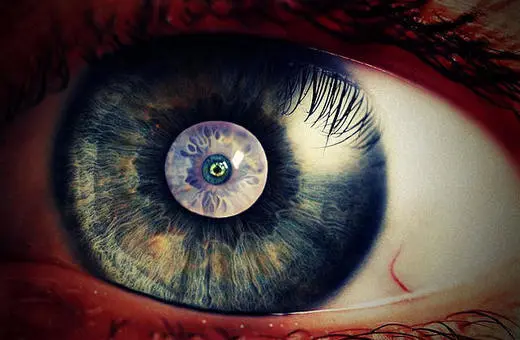Why are black people stopped by police more than white people? Is it simply the actions of an explicitly racist contingent? Or is there something more nuanced at play? Cognitive dissonance is at the heart of this insidious prejudice, write Berit Brogaard and Dimitria Gatzia.
Imagine that Max claims to be a committed environmentalist but continues to consume animal products. Since animal agriculture is one of the main causes of climate change, you may be inclined to think of him as a hypocrite. A hypocrite, after all, is someone who professes to hold beliefs one does not hold.
But not all inconsistencies between beliefs and actions are instances of hypocrisy. In an ideal world, our actions would always reflect our attitudes. Our world is far from ideal. Research shows that while some of our actions are intentional, others involve unconscious, automatic responses. Our unconscious mind can often exert influence on our actions, for instance, when we act on the basis of our implicit biases. A recent study found a broad pattern of discrimination in law enforcement against black drivers: police officers throughout the United States pulled over black drivers at significantly higher rates than white drivers, even after controlling for the drivers’ age and gender.
When we suffer from cognitive dissonance, we tend to automatically do whatever is easiest for us to alleviate the discomfort.
What explains these patterns of discrimination in law enforcement? Is it blatant racism or is the answer more nuanced? Racism is definitely involved but things are more complicated than that. One complication involves cognitive dissonance, a term coined by psychologist Leo Festinger in 1957.
Festinger used the term “cognitive dissonance” to refer to cases involving a cognitive inconsistency between an attitude (such as a belief or a desire) and an action, giving rise to psychological discomfort; frustration, guilt, shame, or self-hatred. Festinger’s hypothesis was that this psychological discomfort triggers unconscious dissonance-reducing strategies. The person attempts to resolve the inconsistency by changing either her actions or her attitudes, whichever is easier.
A classic example is a heavy smoker with an almost irresistible urge to continue smoking. The addict knows that smoking can cause lung cancer and has a strong desire not to get lung cancer. She also knows that satisfying the desire not to get lung cancer would require giving up smoking, which she finds difficult to do. To avoid the inconsistency between the urge to smoke and the desire not to get lung cancer, she may unconsciously resort to a dissonance-reducing strategy. She will stop believing that smoking is dangerous.
In one well-known 1959 experiment, Festinger and Carlsmith asked three groups of participants to perform a series of boring tasks, such as turning pegs in a peg board for an hour. The participants thought that the experiment was over at this point. However, after they finished the task, the experimenter would “hire” each participant to tell the waiting “participant” that the task was interesting, enjoyable, and lots of fun. These participants were paid either $1 or $20 to do the job. The participants who had received only $1 for lying rated the boring task as more interesting and enjoyable than the participants who had received $20 for telling the same lie.
The researchers took these findings to show that the participants in the $1 group were more motivated than the participants in the $20 group to avoid the discomfort of having to take responsibility for lying. As a result had a greater incentive to change their initial belief that the task was boring and start thinking of it as fun.



















Join the conversation